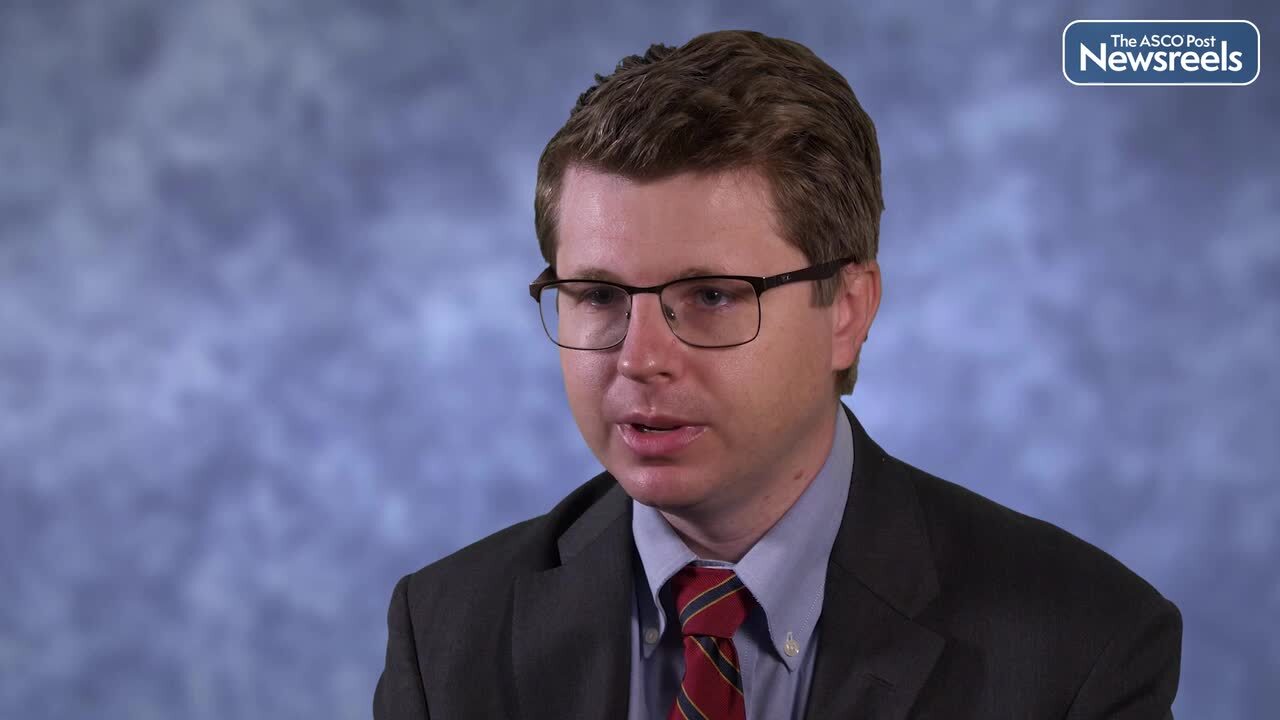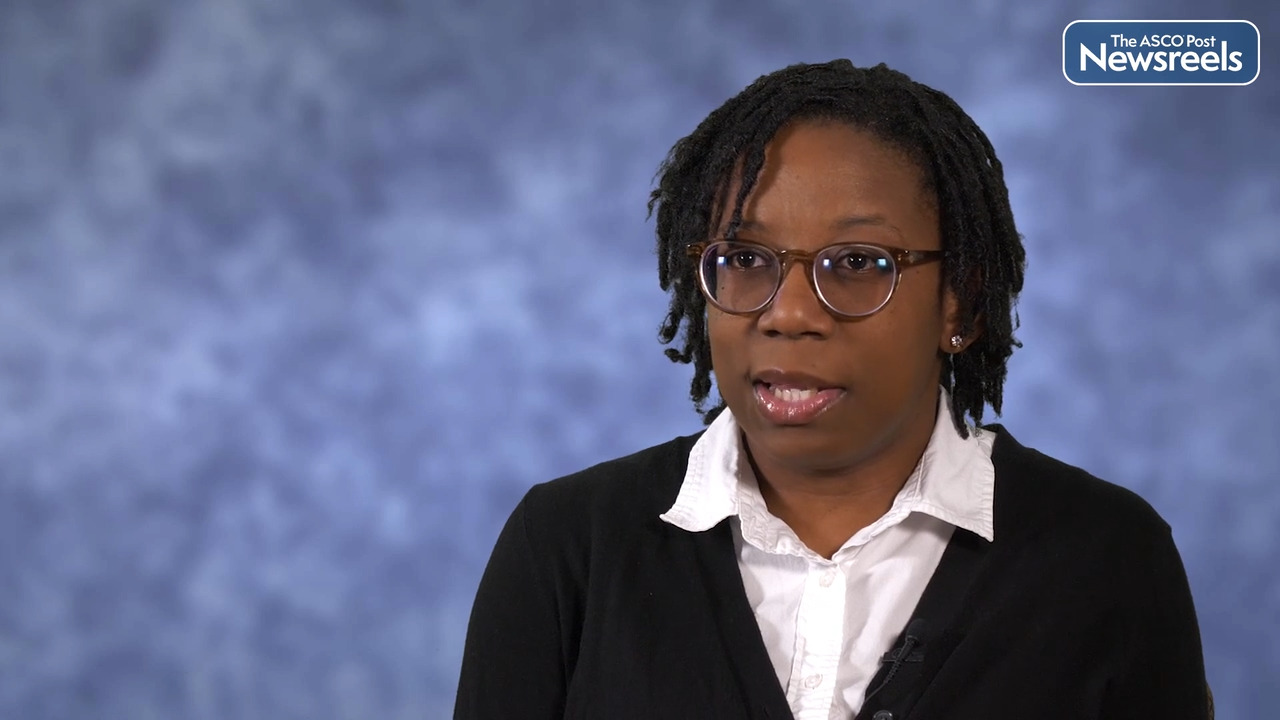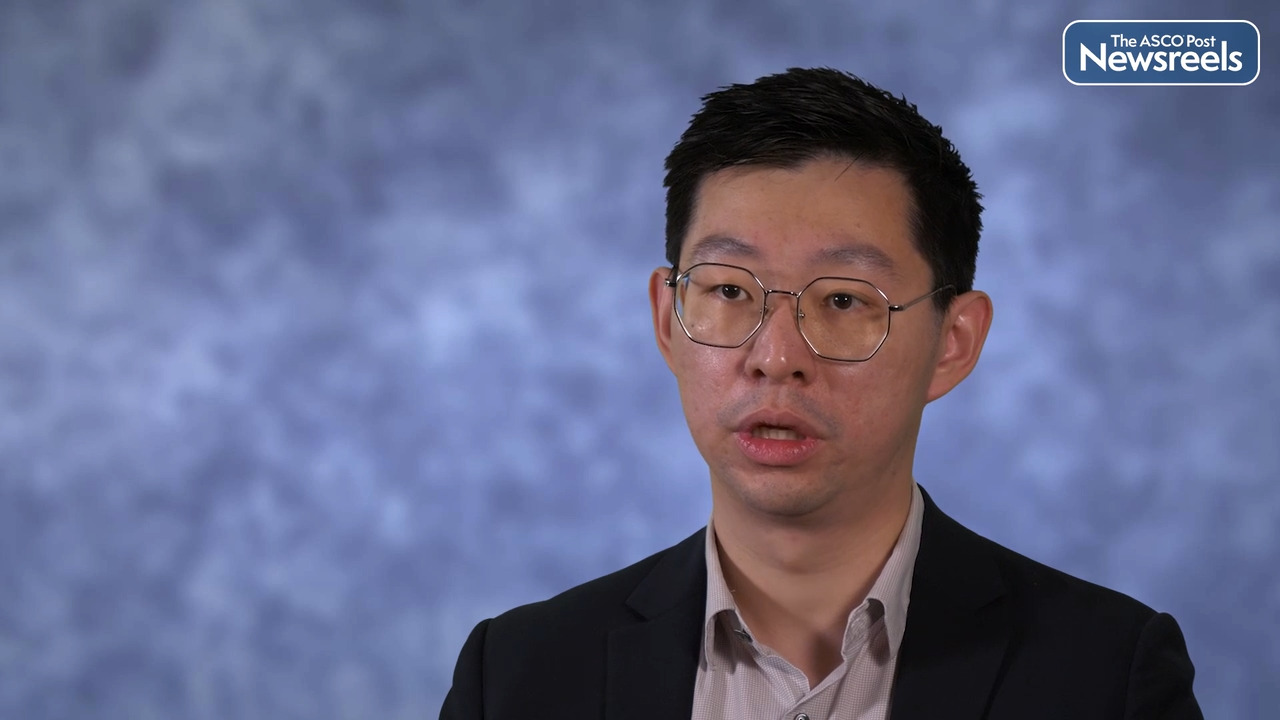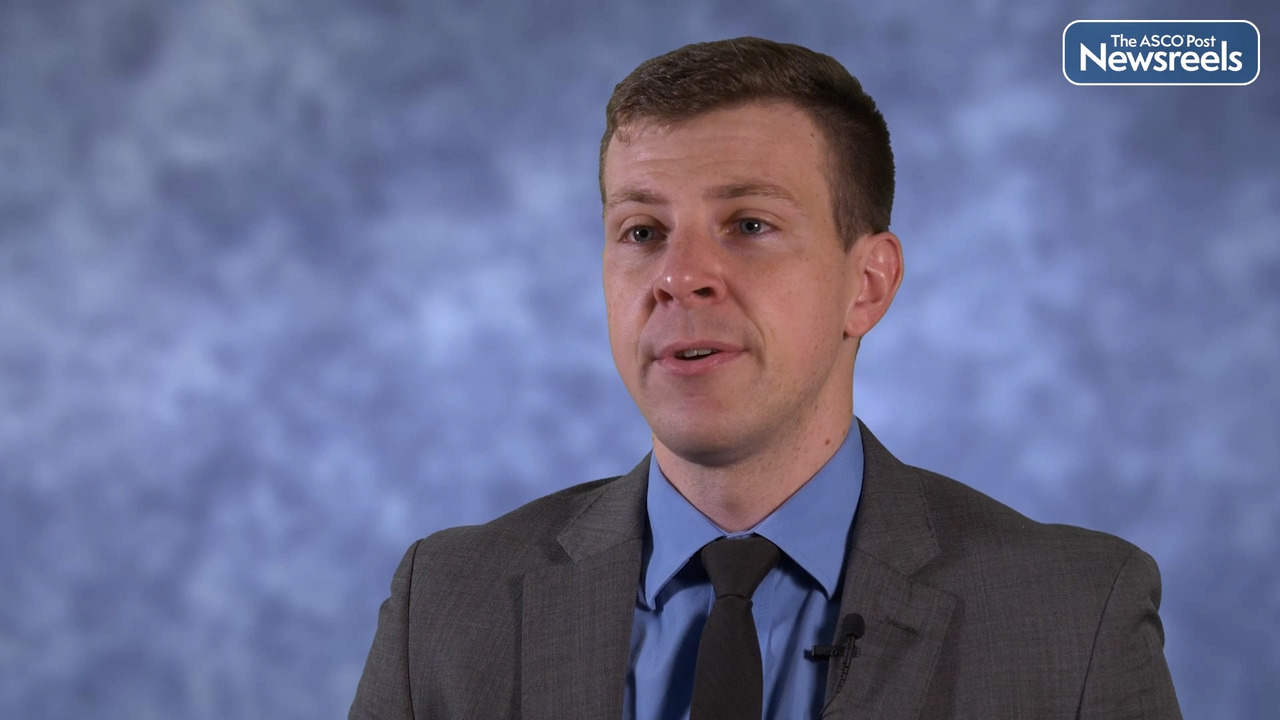Related Videos
Samyukta Mullangi, MD, MBA, on Predictors of Compliance With Payer-Led Oncology Clinical Pathways
Samyukta Mullangi, MD, MBA, of Memorial Sloan Kettering Cancer Center, discusses her findings showing that physicians’ prescribing behavior may be influenced by payer-led pathways. Pathway compliance was associated with higher medical costs during a 6-month baseline period but lower health-care utilization, as measured in hospitalizations and emergency department visits during that baseline period (Abstract 7).
Christopher E. Jensen, MD, on Older Adults With AML: A Price Paid for High-Intensity Chemotherapy?
Christopher E. Jensen, MD, of the University of North Carolina School of Medicine, talks about older adults with acute myeloid leukemia who receive high-intensity chemotherapy. Although they may live longer, much of their survival gains may be spent engaged in oncology care (Abstract 376).
Joannie M. Ivory, MD, MSPH, on Increasing Participation of Black Patients With Cancer in Clinical Trials
Joannie M. Ivory, MD, MSPH, of The University of North Carolina at Chapel Hill, discusses ways to raise the number of Black patients with cancer who take part in clinical trials. More successful accrual may be linked to conducting trials where Black patients live and designing studies to recruit a concrete target percentage of marginalized populations.
Changchuan Jiang, MD, MPH, on Transportation Barriers, Delays in Cancer Care, and Increased Mortality for Patients With Cancer
Changchuan Jiang, MD, MPH, of Roswell Park Comprehensive Cancer Center, discusses the lack of transportation as a potentially modifiable barrier to care for patients with cancer. Timely intervention may reduce visits to hospital emergency departments, lower costs, and improve outcomes (Abstract 70).
Justin M. Barnes, MD, on Medicaid Expansion and Changes in Cancer Mortality Rates
Justin M. Barnes, MD, of the Washington University School of Medicine, discusses the ways in which Medicaid expansion under the Affordable Care Act seems to affect distant diagnoses and cancer deaths per year, the differences in the impact of expansion between Black and White patients in the United States, and why insurance alone appears to be insufficient to overcome structural barriers to care for some populations.





